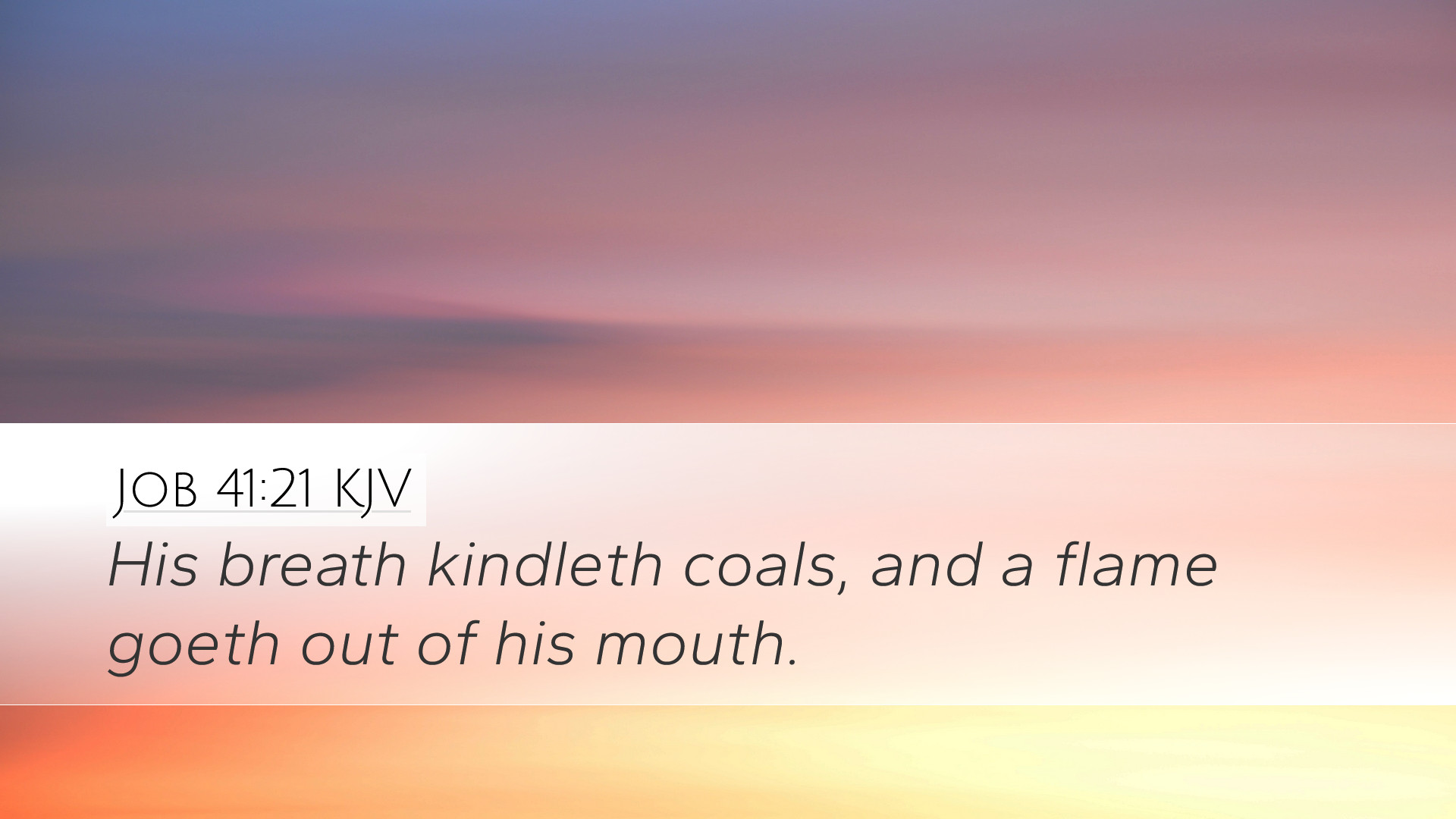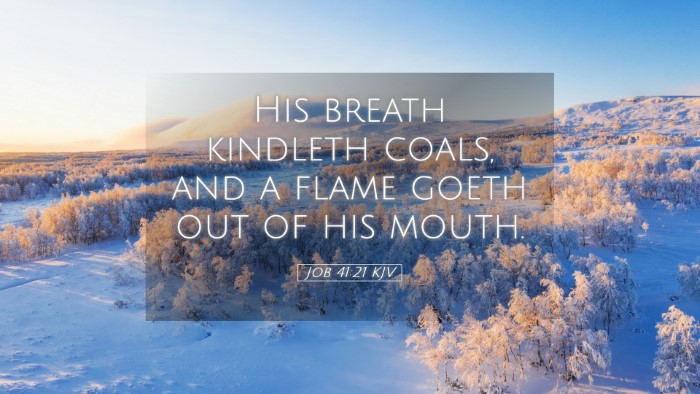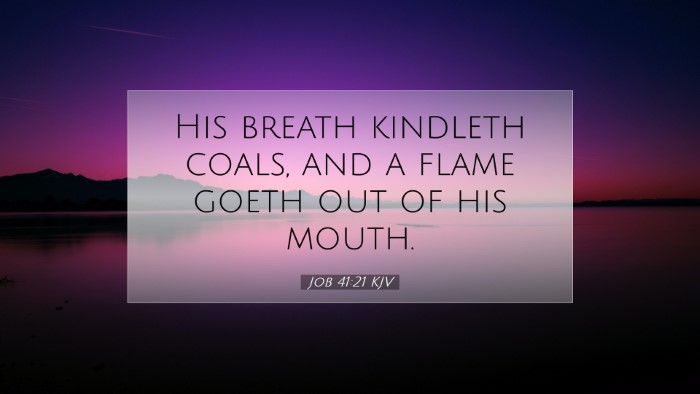Commentary on Job 41:21
Verse: "His breath kindles coals, and a flame goes forth from his mouth." (Job 41:21)
Introduction
The verse from Job 41:21 is part of God's majestic discourse regarding the Leviathan, a primordial creature symbolizing chaos and power. The imagery presented in this verse conveys the awe-inspiring nature of God's creation and underscores the limits of human understanding in the face of divine craftsmanship.
Overview of Commentaries
In analyzing this poignant verse, insights from public domain commentaries by Matthew Henry, Albert Barnes, and Adam Clarke will be blended together to provide a comprehensive understanding suitable for pastors, students, theologians, and Bible scholars.
Textual Analysis
Both Henry and Barnes highlight the dual imagery of fire and breath in this verse. The "breath" of the Leviathan is portrayed as capable of igniting coals, which signifies immense power and a terrifying presence. Clarke elaborates that this could be interpreted not only literally but also metaphorically, indicating the creature's ferocity in its natural habitat.
The Significance of "Breath"
Henry’s Insights: Matthew Henry points out that breath is a significant indicator of life and spirit. In this context, the Leviathan’s breath suggests that it possesses a fierce vitality. It can evoke fear and wonder as it interacts with the natural elements surrounding it.
Barnes’ Interpretation: Albert Barnes refers to the terrifying aspect of this breath, which emphasizes the primal force of the creature. His commentary stresses that this reveals God's creative power, depicting the Leviathan as a being that has the ability to unleash destruction, akin to natural fires.
Clarke’s Contribution: Adam Clarke notes that the fire being kindled can refer to both the literal and symbolic aspects of devastation associated with powerful beings. The flame signifies not only physical destruction but also the spiritual implications of sin and chaos arising in the world.
The Flames from His Mouth
God describes the Leviathan as one who has flames coming forth from his mouth, alluding to his capacity for destruction and intimidation.
- Henry's Perspective: Henry sees these flames as a metaphor for the terrifying force of the creature, capable of instilling fear in the hearts of those who face such power.
- Barnes on Fear: Barnes expounds that the flames represent the supernatural abilities attributed to the Leviathan, paralleling the misconceptions about the fearsome attributes of powerful figures.
- Clarke's Symbolism: Clarke interprets the flames as reflective of the sin and judgment that result from human encounters with chaotic forces, linking back to the broader themes of Job.
Theological Implications
This verse not only depicts the physical prowess of the Leviathan but also initiates theological reflection on God's omnipotence. It is essential to contextualize this passage within the broader narrative of Job's questioning and suffering.
- God's Sovereignty: The descriptions serve to illustrate God's sovereignty over chaos. The ability to create such a creature speaks to His unmatched authority.
- Human Limitations: All three commentators stress that Job's inability to tame the Leviathan is a representation of human limitation, suggesting that there are aspects of the divine and created world beyond human control and comprehension.
- Creation's Testimony: The Leviathan, as a representation of creation, testifies to God's greatness. The breath and flames resonate with many biblical themes of judgment (as seen through fire) and the invisible essence of God’s creative power.
Practical Applications
The insights derived from this verse carry practical implications for the Christian faith today.
- Encouragement Amidst Trials: Just as Job faced overwhelming chaos, believers can find comfort in the acknowledgment that God commands all aspects of creation, and thus every trial is under His divine control.
- Reverence for God: Understanding the grandeur of God’s creations should lead to a deeper reverence and awe for Him, prompting believers to acknowledge their limitations and resultant dependence on His wisdom.
- Awareness of Sin: The discussion around flames can lead to deeper reflections on sin within the soul, reminding the faithful to pursue purity and righteousness in their lives.
Conclusion
Job 41:21 encapsulates the majesty of God's creation and serves as a reminder of human limitations in understanding divine sovereignty. By combining insights from Henry, Barnes, and Clarke, we gain a multifaceted view that emphasizes reverence for God, reflection on our own condition, and the understanding that chaos is ultimately under His control. This passage invites deep theological and personal reflection, serving both as a caution and as a beacon of hope for those navigating the complexities of life.


